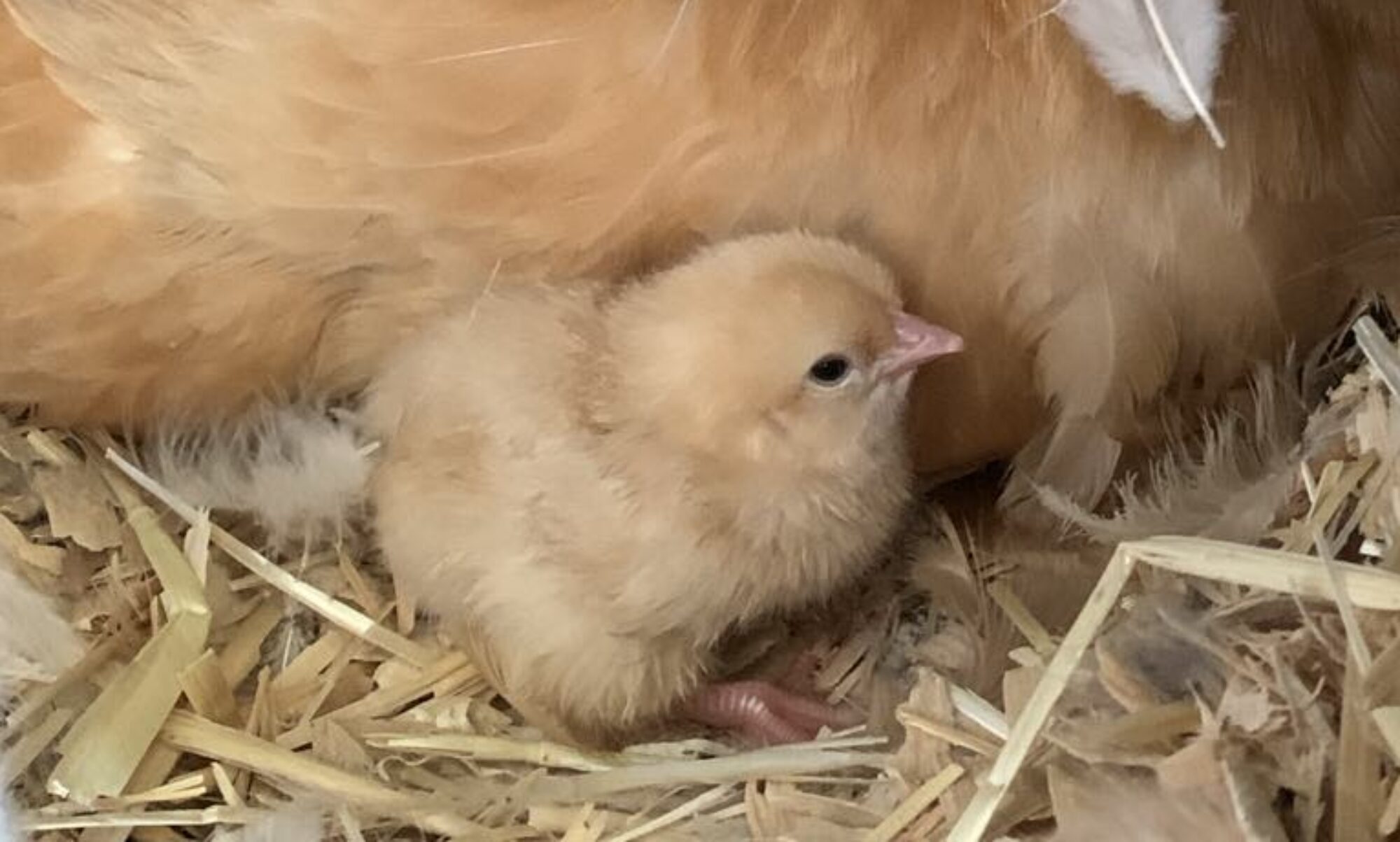Herbs are a good addition to a chicken’s diet. There are many health benefits associated with herbs such as aiding in the recovery from an illness, strengthening immune systems to prevent illness, and discouraging insects, pests and parasites. Different herbs have different aromatic and medicinal properties. I choose to use a more homeopathic approach in caring for my chickens, believing that prevention is the key to a healthy flock. For that reason I like to grow a variety of herbs, providing my birds with a balance of natural substances that promote overall good health.

To feed herbs to my chickens I simply trim some fresh stems, tie them together and hang them for the chickens to peck at and devour. This method provides an activity for them, giving them something to do besides peck on each other. Sometimes I will just harvest fresh leaves and put them in their feed pans along with their breakfast or dinner. I will also trim stems and leaves and dry them. I will store these dried herbs in jars and serve them up to my chickens during the winter so that even then my flock can benefit from the health properties of homegrown herbs.

I enjoy growing herbs in containers, large and small, as well as in my gardens alongside the vegetable plants. One of my favorite herb gardens is an old metal water trough that has some rust holes in the bottom. This is also a favorite spot for some of my free-range chickens and I will occasionally find an egg laid among the plants.

Some of my favorite herbs to plant include:
Oregano – this is a popular herb among chicken keepers due to it’s antibacterial properties making it a great alternative natural antibiotic. It can be used to battle illnesses such as coccidia, and salmonella, and if fed to your flock on a regular basis will help to boost their immune systems, especially in winter.

Lavender – this herb is well known for it’s calming effects and has been touted as a stress reliever for chickens. When used in nesting boxes, the aroma from this herb will help to calm your hen during egg laying. It will also work to repel insects. It is fairly easy to grow and likes a hot climate.

Basil – is an herb which is rich in antioxidants. It also has great antibacterial properties which restrict the growth of some bad bacteria such as e-coli. It is thought to promote respiratory health and have anti-inflammatory properties.

Parsley – is a hearty little herb, lasting in the garden long after most of my other herbs have surrendered to the snow! Parsley in rich in vitamins, helps promote circulatory development, and stimulate egg laying.

Sage – one of my favorites is the pineapple sage. It smells like fresh pineapple when you crush the leaves between your fingers and usually in the fall it develops brilliant red flowers. Just beautiful! Sage contains anti-parasitics and is another herb that is rich in antioxidants, promoting overall general health.

There are also two flowers that I like to plant alongside my herbs, marigolds and nasturtiums. These flowers are edible and my chickens seem to love them. These both contain carotenes that will help to promote darker yellow and orange egg yolks. In addition, marigolds (calendula) are a natural insect repellent when used in your garden and in nesting boxes, and nasturtiums work as an egg laying stimulant and dewormer.


A new to my garden herb that I’m anxious to try this year is Chamomile. We all know that chamomile is used in teas for it’s calming effects and chickens can enjoy these same benefits after eating this herb. Chamomile can also be used to fight those pesky mites and fleas, and as a natural antibiotic. I love the delicate little white flowers.

As much as I look forward to spring and getting out and digging in the dirt, I also enjoy this time of year as I begin to plan my gardens, decide what my gardening goals are, and select the herbs and vegetables that I am going to plant. Making sure that I include ‘herbs for chickens’ is an integral component in my planning. What’s in your herb garden?


